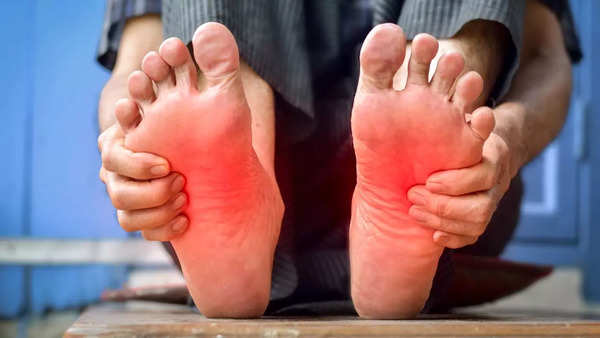High cholesterol often goes unnoticed until it leads to serious health issues, as it usually does not have clear symptoms. However, sometimes, some signs may point out that your cholesterol level is higher and needs more investigation. Here are a few of the warning signs indicating a high cholesterol level.
Shortness of breath: Shortness of breath can indicate that the heart is not receiving enough oxygen-rich blood due to narrowed arteries from plaque buildup caused by high cholesterol. This condition, known as atherosclerosis, can lead to more severe cardiovascular issues. If you experience unexplained shortness of breath any time without exercising or even while engaging in relatively easy physical exercise or at rest it may be a warning sign that your cholesterol levels are high and must look for medical evaluation.
Nausea: Nausea can be a sign of various health issues, including high cholesterol. When cholesterol builds up in the arteries, then this means the flow of blood to the heart is affected hence causing nausea or discomfort. This symptom is often associated with more severe conditions like heart attacks or angina, where nausea may occur alongside chest pain and shortness of breath. In this case, it is important to seek a doctor when you are feeling nauseated persistently and also faced with other symptoms.
Cold feet and leg numbness: Cold feet and legs could be an indication of poor circulation caused by high cholesterol levels, leading to peripheral artery disease or PAD. In this condition, plaque buildup narrows the arteries in the legs, reducing blood flow and causing symptoms like coldness in the extremities and numbness. If you experience such symptoms frequently, especially when performing any physical activity, seek a doctor’s evaluation and possible testing for cholesterol level.
Difficulty healing foot ulcers: Failure of foot ulcers to heal is considered a serious indicator of underlying health issues related to high cholesterol. These ulcers often result from poor circulation due to narrowed arteries caused by plaque buildup. If you have persistent sores or ulcers on your feet that do not respond to standard treatment, it is crucial to consult a healthcare provider for further assessment of your cholesterol levels and overall vascular health.
If you have high cholesterol, fatty deposits could, over time, accumulate in your blood vessels. Eventually, these deposits grow, making it difficult for enough blood to flow through your arteries. At times, the blockages break off and form a clot that causes a heart attack or stroke These warnings can be diagnosed in advance, and timely intervention and control of high cholesterol levels can prevent serious health issues. A regular follow-up and blood tests are important for proper monitoring of cholesterol levels.
Boost Your Health with More Whole Grains in Your Diet
I’m Manas Ranjan Sahoo: Founder of “Webtirety Software”. I’m a Full-time Software Professional and an aspiring entrepreneur, dedicated to growing this platform as large as possible. I love to Write Blogs on Software, Mobile applications, Web Technology, eCommerce, SEO, and about My experience with Life.






